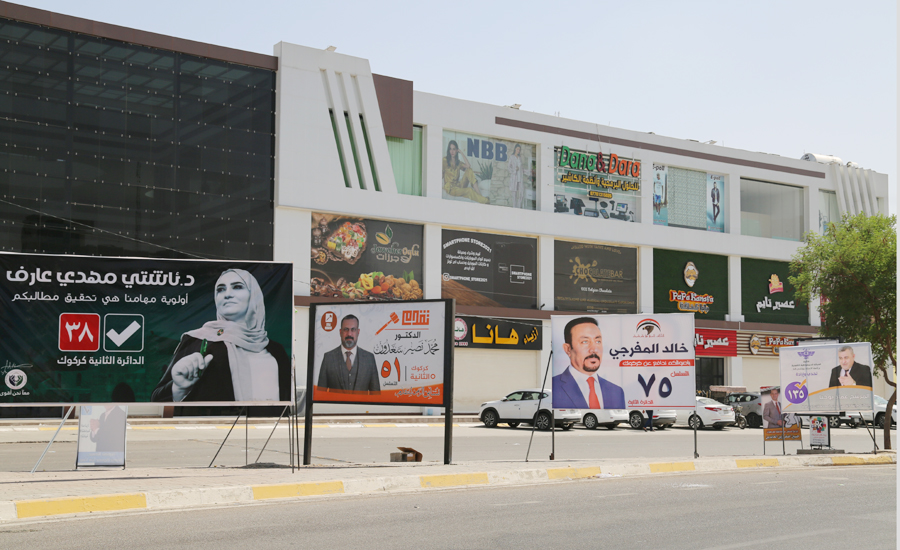One of the leading Kurdish parties turns its back to a woman candidate in favor of another in the multi-ethnic oil rich city of Kirkuk.
The race for Iraqi parliament elections due on October 10th has not only fueled ethnic, sectarian and partisan disputes, yet it has led to internal conflicts in some political parties.
Ashti Mahdi, a candidate of the patriotic Union of Kurdistan PUK in the second electoral district of Kirkuk, accuses her party of nepotism by supporting another candidate in the same district.
"They tried to exclude me in favor of another candidate but I rejected it," Mahdi nervously said. "My party tried to kick me out but I am going on with my electoral campaign."
It's not the first time that the internal disputes inside PUK lead to confrontations within the party itself. The turmoil within PUK is dated back to July, when the second co-president of PUK Bafel Talabani, son of late Iraqi president and former secretary general of PUK Jalal Talabani, accused his cousin, the first co-president of PUK, Lahur Sheikh Jangi, of poisoning him and asked him to step down or leave Iraqi Kurdistan Region IKR.
In Mid-August, a senior member of Patriotic Union of Kurdistan, PUK, told KirkukNow that PUK Politburo has decided to exclude Alla Talabani, a senior member of PUK membership and member of Iraqi parliament representing Kirkuk following the late feuds between the co-presidents of PUK.
Alternatively, PUK has decided to lead a media campaign in favor of Dilan Ghafour, a member of PUK and MP of Iraqi parliament from Kirkuk. Ghafour has been registered by the Independent High Electoral Commission IHEC as an independent candidate.
PUK and Gorran Movement has formed an alliance called (Kurdistan Coalition) for October 10th parliamentary elections.
Out of 12 parliamentary seats for Kirkuk province, the patriotic Union of Kurdistan, PUK, a leading Kurdish party won six seats in Kirkuk province 2018 elections, three seats for each Arab and Turkmen communities and one quota seat for the Christians.
Kirkuk, located 238 kilometers north of Baghdad, is an ethnically mixed province for 1.6 million Kurds, Turkmens and Arabs. It has long been at the center of disputed territories between Baghdad and Erbil.
Kirkuk has been divided into three electoral district where the Kurdish inhabited neighborhoods are within the first electoral district and have five seats while the second mix electoral district is mainly home for the Turkmens who are willing to win the four seats while the PUK have twocandidates, Ashti Mahdi and Gaylan Qadir of PUK, and the Kurdistan Democratic party only one candidate.
The Arab parties have 21 candidates in the second mixed electoral district though the chances are not high.
The Arab-dominant third electoral district has three seats where the PUK has no candidate to compete the Arab community.
On October 10th, over one million Kirkukis will vote in 315 ballot stations for 120 candidates, 33 women and 87 men.
PUK has four candidates in the first electoral district and Gorran only one.
The PUK said in an official statement on October 1st said its duty is to work hard for all the candidates of Kurdistan Alliance and support all equally.
The new electoral law ratified last November, a key demand of October 2019 demonstrators, changes each of the country’s 18 provinces into several electoral districts in order to prevent parties from running on unified lists, which has in the past helped them easily take all the seats in a specific province. Instead, the seats would go to whoever gets the most votes in the electoral districts.
The 329-member house of representatives was elected in May 2018. The vote is held every four years, but the protesters have been demanding early elections.





